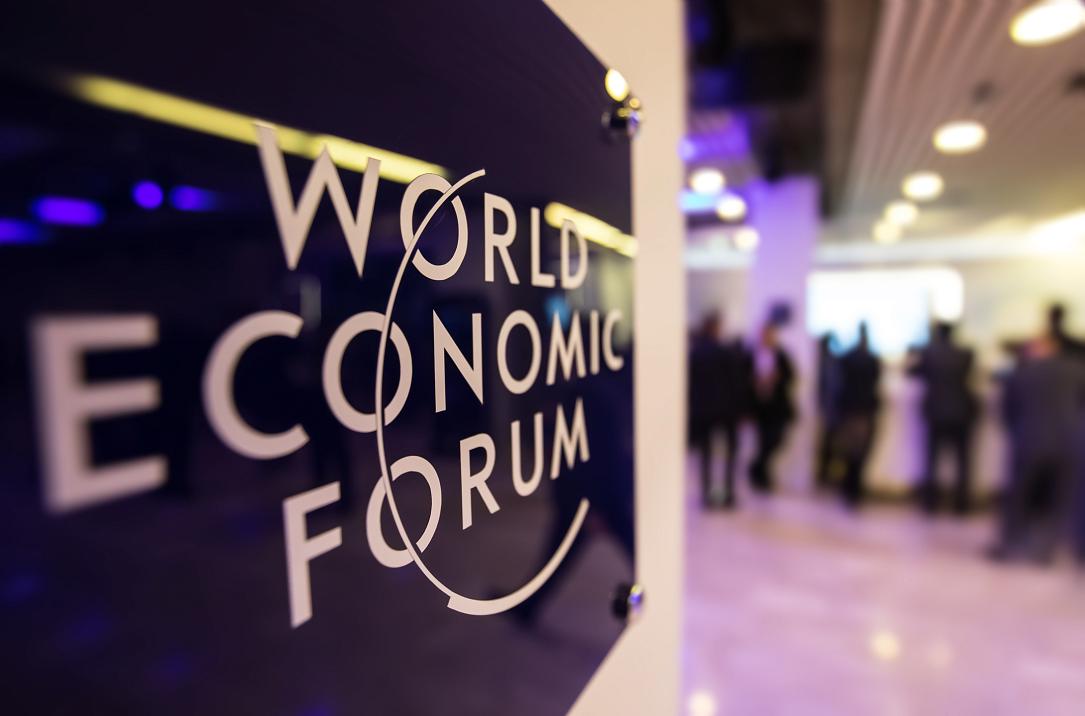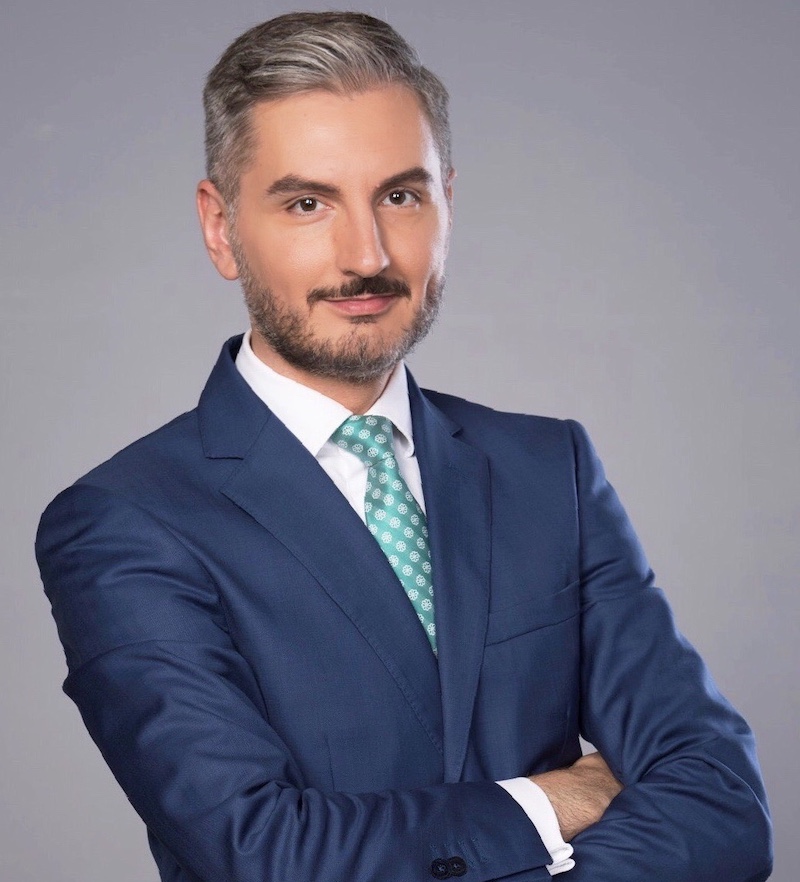Guest post: Six major themes tackled at the World Economic Forum 2023

Guest writer Andrei Buruiana draws his conclusions after the 2023 World Economic Forum in Davos looking at six major themes discussed by the world leaders and their impact on the economy and investments.
Every year, the World Economic Forum gathers heads of state, heads of large corporations, and leaders of multinational organizations, such as the European Commission, the International Monetary Fund, in Davos, Switzerland, for discussions aimed at shaping global, regional and industry agendas.
In this article, I want to evoke a few major themes, compiled after carefully watching a series of panels at this year's conference. Admittedly, I opted for those closest to the macroeconomic, economic, and financial domains.
At the same time, I also intend to translate what was discussed there into some conclusions or elements of impact in our lives.
1. I will open the series of themes with that of climate change, in other words, the growing effects of the climate on mankind. In many discussions this topic was omnipresent.
That is why the European Commission is proposing extremely ambitious targets for reducing (to zero) the net carbon footprint by 2050 and boosting green energy at European level.
Climate change will evermore expose people to many more risks (insurable and uninsurable alike), which is why insurance will become increasingly important.
In the insurance panel, the concept of mandatory insurance for certain events was raised, for example in agriculture, to make insurance premiums lower for those insured; similar to Pillar 2 private pensions.
2. As a spin-off theme from climate concern, there is the theme of renewable or green energy.
As such, in her speech, Ursula von der Leyen evoked a broad investment programme in the field of clean energy: the Green Deal Investment Plan with 4 pillars: regulatory framework, increased financing of green energy, development of specialised green energy skills and facilitation of green energy transactions.
Some other ideas from the same speech:
- The market for manufactured clean energy products will be 650 billion annually according to the International Energy Agency by 2030;
- Clean energy technology is the most dynamic field in Europe.
The US is no exception on the matter, and their massive subsidies for green energy are in discussion.
"If there is a competition to accelerate the adoption of renewables, for supremacy in storage and transmission technology, it is an extremely healthy competition," said Larry Summers, a leading US economist, in another panel.
"Together with President Macron, we want to invest more in hydrogen, semiconductors, solar panels, nuclear power, and renewable energy. We want to produce our own chips, to increase the share of European semiconductor production from 9% to 20%," French Finance Minister Bruno Le Maire said in the same panel.
So green energy is a very dynamic field, and it's also good for investors. Batteries, power grids, and chips are areas of great interest for investment.
3. Another pervasive theme is persistent global inflation.
The fact that central banks seem to be in full control of the long-running inflationary phenomenon is a topic in itself, with the expectation that inflation will start to fall.
However, the expectation is that interest rates will continue to rise for the coming period so as not to risk a resurgence of inflation.
"Central banks should not give up the fight against inflation prematurely lest they allow inflation to rise again, putting pressure on people's real incomes," says the same Larry Summers.
Basically, US financial markets have priced in (i.e. stock prices take into account) another 75-100 basis points of Fed interest rate hike.
The inflationary risk is now coming from China, which has reopened its borders.
4. And here I open the fourth relevant theme: China
China's reopening could mean high demand for oil and gas, hence keeping prices high, hence pressure on inflation.
In addition to that, there are also Chinese citizens who have accumulated savings and want to travel again. Again pressure on demand for goods and services i.e. pressure on inflation.
The conclusion would be that the fight against inflation is not yet won, despite the general optimism, an optimism that was also felt in Bucharest the other day or so.
5. One topic that has been of personal concern to me is investment.
Here I would like to quote a few key phrases from the panels:
- The year 2023 will be quite volatile in equity markets;
- Bonds, including government bonds, will become interesting again;
- The quintessential investment focus, according to the Davos panelists, must include food and water; obviously, investment-wise;
- When it comes to investing in emerging markets, economic growth does not necessarily translate into higher profits or earnings per share;
- "In 2023 we're watching commodities and real estate closely," says a US pension fund manager's representative;
- Crypto must and will be regulated, says the head of France's central bank François Villeroy de Galhau
- Banking systems are sound now, unlike during the great financial crisis of 2008-2009.
6. The topic of risks was also tackled by the Davos speakers, and here I will again take the liberty to list ideas directly from them.
Risks in Larry Summers' view: the return of high inflation, Covid mutations, geopolitical risk in Asia and the Middle East, and political hyper-populism.
Risks as seen by Christine Lagarde, head of the ECB: fiscal policies should not cancel out the effect of monetary policies (e.g. populist decisions), climate change and global poverty levels, solidarity between the US, Europe and countries like Japan should not be affected by national policies.
Risks according to Bruno Le Maire: the war in Ukraine, especially its prolongation and its human and economic effects (influence on prices of certain goods and energy).
Other risks mentioned by consensus:
- State indebtedness is a subject of systemic risk in financial markets;
- Global indebtedness is at a worrying level;
- There is a risk of recession in some areas in 2023: US, Europe and UK; the inverted US bond curve predicts a recession.
These were the themes that I managed to cover and were also of immediate interest to me.
Author’s disclaimer: opinions are personal or quoted from public sources and do not represent investment/divestment advice or advertising for a particular financial product, financial service, or financial company.
by Andrei Buruiana, contributor
 Andrei Buruiană is a seasoned professional in financial services, with 15 years of experience, having covered:
Andrei Buruiană is a seasoned professional in financial services, with 15 years of experience, having covered:
- Investment & Pension Fund Management;
- Retail Banking: Wealth Management & Private Banking, Product Management and Business Planning;
- Project Finance: EU Funds;
- Training & Consulting (currently), covering: Personal Finance, Sales and Ledership.
Andrei is also a content creator and contributor on several Romanian business & economics platforms. He has a Bachelor’s degree in International Business & Economics, from the Bucharest University of Economic Studies.
(Photo source: Palinchak | Dreamstime.com)













